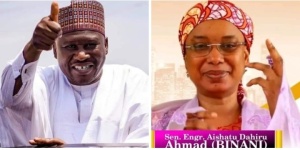President Bola Ahmed Tinubu (GCFR) recently welcomed former President Goodluck Jonathan to the Presidential Villa in Abuja for a meeting. The visit of the former president garnered significant attention and sparked speculation about the purpose and implications of the meeting.
The meeting between President Tinubu and former President Jonathan was characterized by an atmosphere of cordiality and mutual respect. The two prominent political figures engaged in extensive discussions behind closed doors, which lasted for several hours. The nature of their conversation remains undisclosed, leaving room for speculation and conjecture among political pundits and the public alike.
The meeting holds great significance in Nigeria’s political landscape, as both President Tinubu and former President Jonathan have played pivotal roles in shaping the country’s political history. President Tinubu, a prominent leader and astute politician, has been a key figure in Nigeria’s democratic process. He has served as a former governor of Lagos State and is widely regarded as one of the architects of the ruling party’s formation.
Former President Jonathan, on the other hand, is remembered for his tenure as Nigeria’s president from 2010 to 2015. He played a significant role in the country’s democratic transition and has remained active in national and international affairs since leaving office. His visit to President Tinubu carries weight, considering his influence and political standing within the country.
Speculation surrounding the purpose of their meeting has generated various theories. Some suggest that it may signal a political realignment or a potential collaboration between the two leaders, while others opine that it could be a gesture of goodwill aimed at fostering national unity and reconciliation. However, no official statement has been released by either party regarding the details of their discussions.
The meeting has also sparked conversations about the evolving political landscape in Nigeria and the upcoming presidential elections. As the country approaches another critical electoral cycle, such high-profile meetings between influential political figures generate intrigue and raise questions about potential alliances, political strategies, and the direction of the nation’s future.










